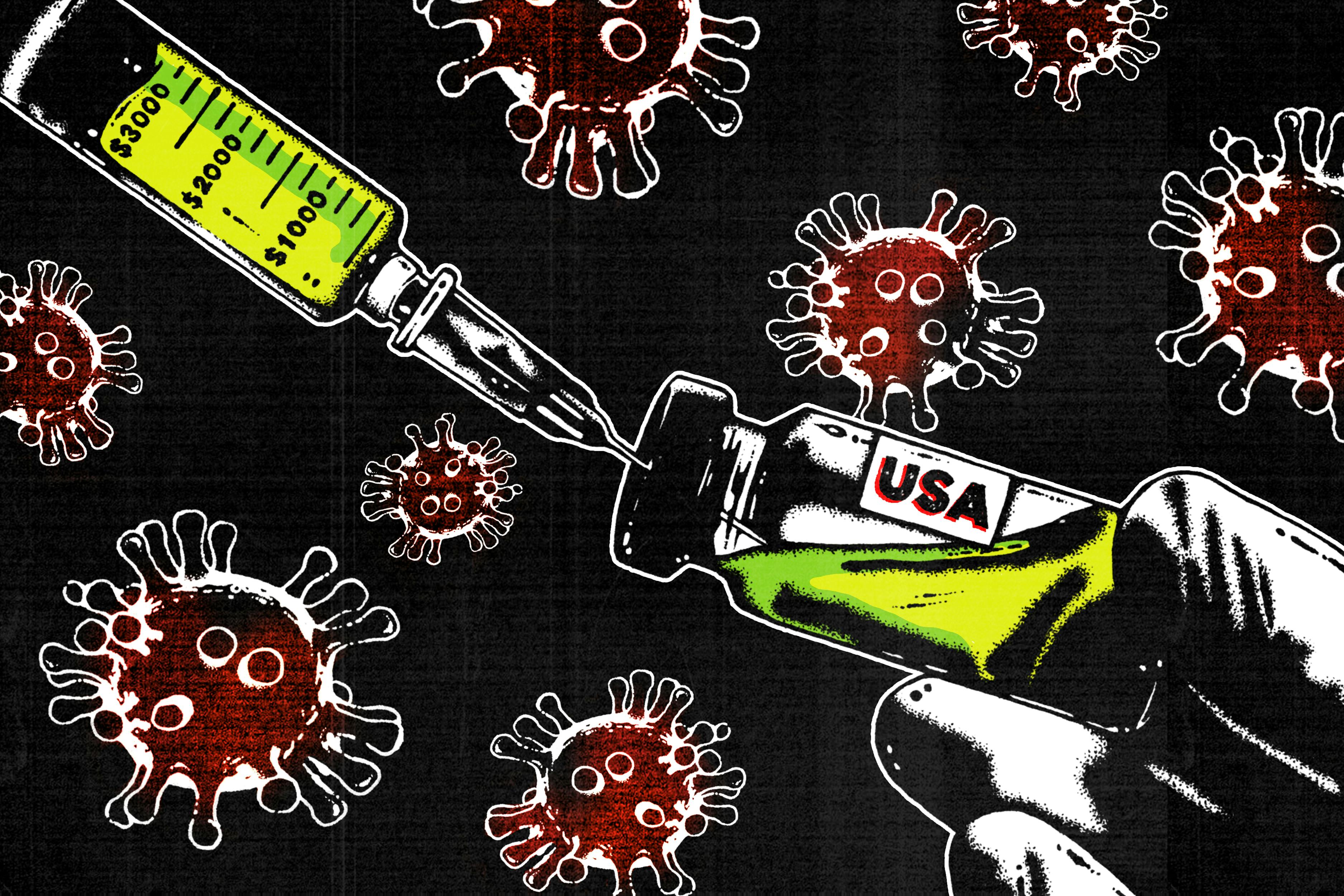 Vaccines, risks and business
Vaccines, risks and business
x Silvia Ribeiro {The development of vaccines against Covid-19 is a historical profit hit for the large pharmaceutical industry
Not only if they achieve effectiveness and sell it, but also previously due to financial speculation with their shares and, above all, thanks to the huge government subsidies they are receiving. According to the Financial Times, selling the vaccine can be pure profit, because the costs have already been covered in advance with public money. (Anna Gross, FT, 11/12/2020).
Another very worrying aspect: the companies that have announced an effectiveness of more than 90 percent in their vaccines against Covid-19, Pfizer / BioNtech and Moderna, use a new genetic engineering technique (mRNA) never before tested in humans. The vaccine is experimental, but so is the technique itself and its general unforeseen effects. Their claims that they are safe are more like commercial bravado: there is no way to ensure they are risk-free in the medium or long term. Even in the short term, because it is not known what effects are detected or not reported.
In this regard, the Union of Scientists Committed to Society and Nature in Latin America (UCCSNAL) issued a statement explaining the potential risks and calling for extreme caution and independent evaluation before authorizing these transgenic vaccines (https: // tinyurl. com / y6cb3w4k).
Companies are aware of this lack of certainty. Pfizer CEO Albert Bourla had coldly calculated to sell a large amount of his shares on the day of the new vaccine's announcement, the day they experienced a sudden increase in value, for which he obtained $ 5.6 million. Also the vice president of the same company, Sally Susman, sold shares worth 1.8 million dollars that day.
In addition to the infidence (allowed), it reflects that both estimated that the shares could fall later. Pfizer shares rose 7.7 percent and BioNtech 13.9 percent. Moderna's rose 13 percent a week later.
In case they had any doubts, let us remember that the main interest of the large pharmaceutical transnationals is not health, but profit. In fact, your ideal client are sick people, because healthy or deceased people stop using. This industry has made such profit percentages that they have been the subject of analysis by various competition commissions, including in the US, which confirmed that they had higher profit return percentages than many other industrial items.
 America, we have a drug problem, and it’s worse than you might realize.
America, we have a drug problem, and it’s worse than you might realize.
In addition, they have a long and lousy track record of acknowledging their mistakes and the serious side effects they have caused to various people, as well as assuming their costs and compensating them. According to the Gallup pollster, in 2019 pharmaceutical companies became the worst considered by the US public, even lower than the oil and gas or propaganda industries for their abuses (https://tinyurl.com/y37d955r )
At the beginning of the pandemic, several large pharmaceutical companies were hesitant to invest in vaccines, because with previous epidemics, viruses mutated and they did not see it as a good investment. Anna Gross reports in the Financial Times that companies changed their minds when they saw that the contagions were transmitted between people and that this ensured an area and a much longer period of permanence of the pandemic. But the main factor, he adds, was the large unprecedented public subsidies, especially in the US. The US Administration's Operation Warp Speed awarded $ 1.2 billion to AstraZeneca; 1.5 billion to Johnson and Johnson; 1.6 billion to Novavax; 1,950 million to Pfizer; 2 billion to Sanofi / GSK and 2 billion to Moderna, between investments and purchase agreements.
David Mitchell, from the civil association Patients for Accessible Medicines, pointed out that in the case of Moderna, the government appears to have paid all the research and development costs, so the high sales price it announced ($ 60 per vaccine, 3 -6 times higher than others in progress) is all profit (https://tinyurl.com/FT121120). Moderna's collaboration in the development of the vaccine with the National Institute of Health, led by Anthony Fauci, provides it with even more public resources, such as recruiting and supervising volunteers, and so on.
Moderna expects additional profits from other vaccines on the way, with the same mRNA technology that has never been tested. Thanks to the urgent approval status for the pandemic that companies are requesting, they hope to be able to commercialize the other vaccines soon as well.
We cannot allow this profit industry to proceed without rigorous independent evaluations, in the largest transgenic human experiment to date. Nor that they are supported with money from the treasury and volunteers who are not informed of the real spectrum of risks and uncertainties at stake. The vaccine is the narrowest approach to the pandemic, and it will not solve it, in fact the market is expected to persist for years.
What is needed is to question the causes and prevent. Still, there are other vaccines in development that do not add the new layer of risks of these from Pfizer, Moderna and others from RNA and DNA.
The Day
No comments:
Post a Comment